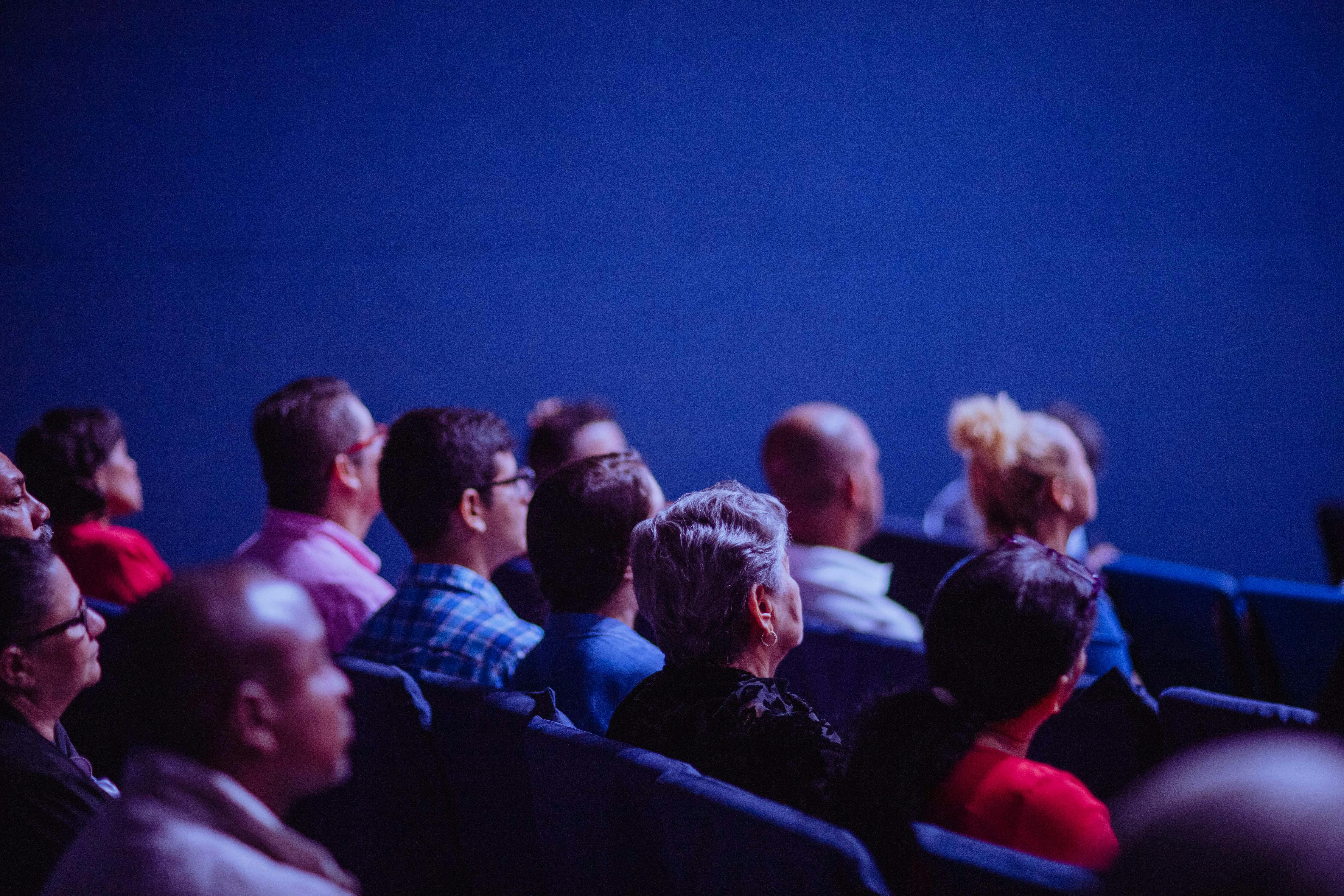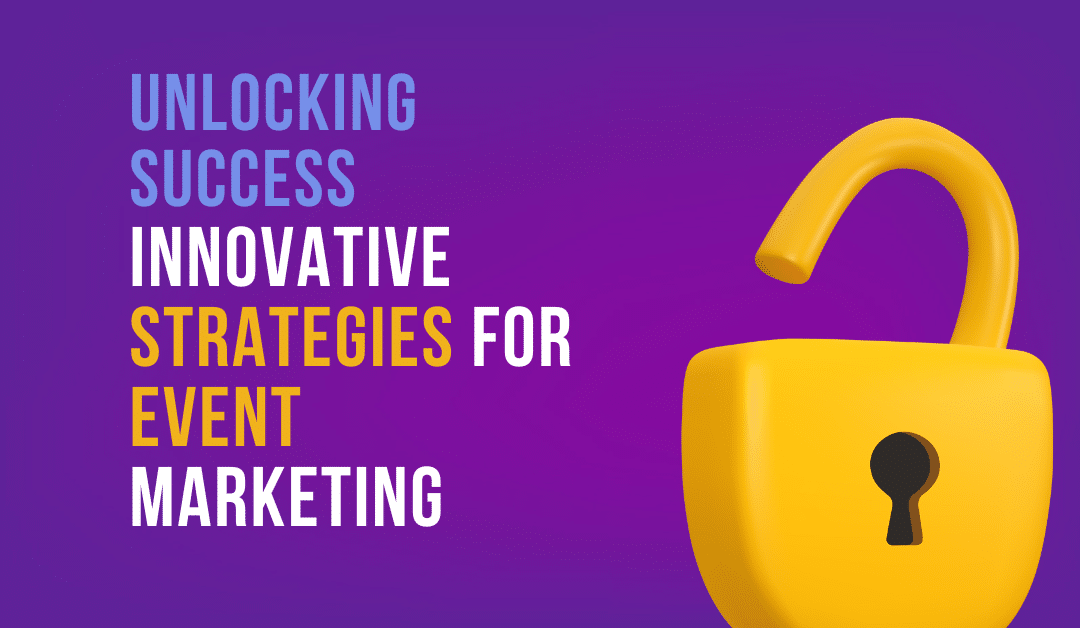
Introduction to Event Marketing
Sparkling lights, the hum of conversation, the thrill of discovery — events are more than just gatherings, they are experiences. Whether it’s a bustling trade show floor, a thought-provoking seminar, or an online product launch party, each event is a unique opportunity to connect, educate, and inspire. This is the magnetic allure of event marketing. As a strategy, it goes beyond traditional advertising to create memorable, interactive experiences that drive engagement and foster relationships.
Event marketing is a multi-faceted discipline, encompassing everything from planning and organizing to executing events with the aim of promoting a brand, product, or service. These events, held either in-person or online, are platforms where companies can act as hosts, exhibitors, or sponsors. They offer a unique chance to connect directly with potential customers, offering value and building brand loyalty.
Whether you’re organizing an intimate roundtable discussion or sponsoring a city-wide 5K, event marketing has the potential to significantly boost your brand’s visibility and reputation. The size or platform of the event doesn’t matter as much as the value it brings to your customers and your brand.
In this guide, we’ll delve into the world of event marketing, exploring its various types, its significance for business growth, and, most importantly, the innovative strategies that unlock its full potential. From goal setting and budget planning to content creation and post-event marketing, we’ll equip you with the knowledge you need to make your next event a resounding success.
Remember, events are not just about selling; they are about creating meaningful experiences that resonate with your audience. So, are you ready to unlock the dynamic power of event marketing? Let’s dive in!
Understanding the Different Types of Event Marketing
As the saying goes, variety is the spice of life, and the world of event marketing is no different. There are numerous types of events you can leverage to connect with your audience, boost brand recognition, and ultimately drive business growth. Let’s unpack some of the most common types of event marketing to give your business a competitive edge.

Conferences
Conferences are large-scale events often organized by a single major company and sponsored by numerous smaller brands and businesses. They offer a dynamic agenda packed with keynote speakers, breakout sessions, and plenty of networking opportunities. Both B2B and B2C brands can benefit from these events, making them a versatile option for any business looking to broaden its reach.
Trade Shows and Expositions
Trade shows or expositions are industry-specific events that allow companies to showcase their products and services. These events often attract a large number of qualified leads. Unlike conferences, which are open to the public, trade show attendees are typically pre-qualified buyers, company representatives, and salespeople. Today, the industry is witnessing the rise of hybrid events, combining in-person and virtual elements, accommodating the varying needs and preferences of today’s attendees.
Seminars
Seminars, or webinars when hosted online, are education-focused events attended by a small number of people. They often involve discussions, lectures, and intimate networking opportunities. These types of events are great for deep dives into specific topics and are commonly used for thought leadership and expert positioning.
Pop-Up Shops
Pop-up shops are temporary retail spaces that provide companies, particularly e-commerce brands without a full-time brick-and-mortar storefront, the opportunity to sell their products in a controlled environment. They offer the chance to bring digital brands to life through a physical, immersive customer experience.
Launch Parties and Celebrations
Launch parties or celebrations are personal and intimate events held at the launch of a new business, a significant announcement, or to celebrate a success or milestone. They are an excellent way to foster relationships with clients or customers and create a positive association with your brand.
Workshops
Workshops share similarities with seminars in that they focus on sharing knowledge and educating attendees. However, they are often open to the public and can be offered both virtually and in-person. Workshops may not be explicitly promotional, but they usually center around a topic relevant to the business, which boosts the company’s credibility in their field.
Keep in mind that these are just some examples. Event marketing is a versatile and flexible strategy that can be molded to fit your specific business needs. Whether it’s a job fair, a VIP experience, an award event, or even a golf outing, the possibilities are endless. The key lies in identifying the event type that best resonates with your target audience and aligns with your brand identity.
The Role of Your Company in Event Marketing
Navigating the bustling world of event marketing can feel like a high-stakes chess game. What’s your next move – hosting, sponsoring, or simply attending? The role your company takes on can significantly impact your brand’s visibility and how you engage with potential customers.
Hosting an Event
Hosting an event is a brilliant way of taking center stage. This role offers an unparalleled opportunity to boost brand awareness and reach your target audience effectively. When considering hosting an event, think about your customer base, the type of events they are likely to attend, and the most effective ways to promote your event. Remember, the objective is to create an unforgettable experience that aligns with your brand’s personality and resonates with your audience.
Also, think about partnering with non-competing businesses. Not only can this help you share costs, but it can also increase your reach and exposure. Importantly, make sure your event has measurable metrics for success, be it attendee numbers, social media engagement, or post-event sales.
Sponsoring an Event
Sponsoring an event can be a strategic move to gain access to an engaged and enthusiastic audience who will be receptive to your message. It’s a chance to build brand awareness with a target audience and align your brand with the host’s brand and other companies sponsoring the event. In addition, sponsoring an event often provides opportunities to network with other businesses and create partnerships that make sense for your business. Brands can also interact directly with their customers, building deeper relationships and addressing any questions or pain points they may have.
Attending as an Exhibitor
If hosting or sponsoring an event seems like a big leap, attending as an exhibitor can be a good starting point. Trade shows and conferences bring together individuals and companies in a particular industry or profession. They are often used for lead generation and building brand awareness. Remember, your presence at a trade show should stand out. Be creative and ensure your booth reflects your brand’s personality and values.
In conclusion, the role your company plays in event marketing should align with your business goals and customer needs. Whether you’re hosting, sponsoring, or attending as an exhibitor, each role offers unique opportunities to engage your audience, build brand awareness, and generate leads. The key is to understand your audience, deliver value, and measure your success. Remember, event marketing is not just about the event itself but the relationships and connections you build along the way.
The Importance of Event Marketing for Business Growth
Exploring the world of events can be akin to discovering a secret weapon in your marketing arsenal. The power of event marketing is undeniable, acting as a catalyst for business growth and offering a plethora of benefits that can propel your company to new heights. Here, we delve into why event marketing plays such a pivotal role in business expansion and how it can drive your company’s success.
Business Generation and Revenue Opportunities
Event marketing can act as a veritable goldmine for new business opportunities. A staggering 95% of marketers vouch for the major impact in-person events can have on achieving their company’s primary business goals. The simple act of event registration can create a rich database of individuals already expressing interest in your brand or industry. This not only paves the way for potential conversions but also facilitates valuable market research.
One-on-One Customer Engagement
In a world where digital interactions often reign supreme, events provide a refreshing opportunity for face-to-face engagement. A Bizzabo study found that 93% of marketers believe in-person events offer a valuable opportunity to build connections, thereby humanizing your brand. These personal interactions can foster brand loyalty and provide a platform for you to capture a client’s attention more effectively than digital channels.
Building Brand Awareness
Events are a powerful tool for both establishing and growing your brand. Hosting or participating in events allows you to associate a physical identity with your brand, enhancing its visibility and impact. The key here is that people talk about events, in person, on social media and in the press, thereby amplifying your brand reach and recognition.
Encouraging Product and Industry Education
Education is a key component of successful event marketing. Events often focus on educating and entertaining a demographic or industry, whilst subtly promoting products and services on the side. This can create an engaging environment that not only showcases your brand but also provides value to attendees.
Harnessing the Power of Hybrid Events
With the rise of hybrid events, combining in-person and virtual elements, event marketing has evolved to accommodate varying needs and preferences of today’s attendees. These hybrid events offer increased flexibility and reach, providing a platform for businesses to showcase new products and services to a wider audience.
Post-Event Engagement
The impact of event marketing extends beyond the duration of the event itself. Post-event engagement remains strong, driving website traffic and increasing brand awareness. For instance, studies show that 38% of attendees visit a company’s website after the event, demonstrating the potential for follow-up engagement and conversions.
In conclusion, event marketing is not just a marketing strategy, but rather a business growth strategy. It offers opportunities for lead generation, customer engagement, brand awareness building, and industry education. This multifaceted approach can significantly boost your business growth, making it an investment worth considering.

Innovative Strategies for Successful Event Marketing
Unlocking the potential of event marketing requires a strategic approach. From goal setting to measuring success, each step needs to be carefully crafted to ensure the highest possible engagement and return on investment. Here are some innovative strategies to help you achieve success in your event marketing endeavors.
Utilizing SMART Goals and Budget Planning
When planning your event, start with defining your SMART goals. SMART stands for Specific, Measurable, Attainable, Relevant, and Time-bound. These goals should not only be about increasing leads, but also strengthening relationships and engaging prospective customers. For instance, a SMART goal could be “to grow our prospective leads list for our new product by 100 names by the end of the event.”
Further, defining your budget early on in the planning process is crucial as it will guide every decision you make, from selecting the venue to deciding on entertainment and creating your event website.
Creating a Unique Event Theme and Brand
An event’s theme and brand can significantly influence its appeal and success. Your event should have a distinct identity that aligns with your company’s brand and resonates with your target audience. Whether your event is an offshoot of your company or a standalone brand, it’s crucial to communicate its purpose and benefits to potential attendees effectively.
Identifying and Reaching Your Target Audience
Understanding your target audience is key in designing an event that will attract and engage them. Once you’ve defined who your audience is, you can use the appropriate marketing channels to reach them. Social media, your event website, print advertisements, and event listing websites are all effective ways to get your event in front of the right people.
Content Creation and Management for Event Marketing
Promoting your event involves a lot of information, from the who, what, when, and where to the why and how. To manage this effectively, you need a detailed content creation and management plan. This includes deciding on the type of content you’ll use to promote your event, the platforms you’ll use to distribute it, and the schedule for releasing it.
Effective Event Marketing Timeline
Creating a marketing timeline can help you stay organized and ensure you’re promoting your event at the right time to maximize impact. This timeline should outline when to start promoting your event, when to ramp up efforts as the event approaches, and how to continue promoting during the event.
Promoting and Marketing During the Event
Your marketing efforts shouldn’t stop once the event starts. Use live updates, social media posts, and real-time engagement strategies to keep attendees involved and attract more attention to your event. This can also create a sense of FOMO (Fear Of Missing Out), potentially attracting last-minute attendees or increasing interest in future events.
Measuring Event Success
Finally, it’s essential to measure the success of your event. This not only includes comparing the outcomes to your SMART goals but also gathering feedback from attendees, analyzing social media engagement, and assessing any increases in leads or sales. By understanding what worked and what didn’t, you can make data-driven decisions to improve future events.
By implementing these innovative strategies, you’ll be well on your way to unlocking success in your event marketing efforts.
Leveraging Event Marketing Tools and Services
The key to a successful event marketing strategy often lies in the tools and services you use. These not only streamline the event planning and execution process but also enhance attendee engagement and overall experience. From design services to boost your event’s visual appeal to content marketing tactics for promoting the event, let’s explore the tools and services that can supercharge your event marketing strategy.
Design Services for Event Marketing
A visually stunning event can create an unforgettable experience for your attendees. Design services for event marketing can help you achieve this by crafting captivating event logos, banners, brochures, and stage layouts. These visual elements can enhance your brand’s image, draw attention to your event, and create a lasting impression on attendees. Whether it’s an in-person trade show or a virtual seminar, a professional design service can help you create an aesthetically appealing atmosphere that resonates with your brand and event theme.
Content Marketing for Events
Content marketing plays a crucial role in driving awareness and interest in your event. This includes creating engaging blog posts, social media updates, email newsletters, and press releases leading up to the event. You can also repurpose recorded sessions into various content pieces to drive back to your on-demand content, extending the lifespan of your event and maximizing its impact. By consistently delivering valuable and relevant content, you can keep your audience engaged and excited about your event.
Video Production for Event Marketing
In an age where video content is king, incorporating video production into your event marketing strategy can be a game-changer. This can range from promotional videos and live streams to post-event highlights and attendee testimonials. Videos provide a dynamic and engaging way to showcase your event, giving your audience a taste of what to expect or a recap of what they may have missed. Moreover, video content can be easily shared across social media platforms, helping to increase your event’s reach and visibility.
Event and Conference Promotion Gadgets
In a world where digital and physical experiences often intertwine, event and conference promotion gadgets can be a unique way to engage your audience. This can be anything from wearable tech and mobile apps to interactive displays and virtual reality experiences. These gadgets can enhance the attendee experience, provide valuable data insights, and create buzz around your event.
In conclusion, leveraging these event marketing tools and services can help you create a memorable event that resonates with your audience and achieves your business goals. By investing in design services, content marketing, video production, and innovative gadgets, you can take your event marketing strategy to new heights.

Post-Event Marketing Strategies
The grandeur of your event should resonate even after the curtains close. Post-event marketing strategies can help keep the buzz alive, fostering engagement and establishing your brand as a thought leader. Let’s dive into a couple of creative strategies to amplify your event’s impact.
Turning Session Videos into Sneak-Peak Content
When the spotlight goes off, the magic of content repurposing begins. The invaluable resource you have in hand is the recorded sessions from your event. These videos can be transformed into a wide variety of content pieces that drive traffic back to your on-demand offerings.
One effective strategy is to create sneak-peak content. Extract key takeaways from your sessions and use them to develop short, engaging video snippets. These snippets serve as a teaser for the full session and pique the interest of those who missed out on the live event. Moreover, they can be used to promote the full recorded session, driving more viewers to your on-demand content.
Creating Social Buzz Post-Event
Social media is a powerful tool to keep the conversation going post-event. One innovative strategy is to develop a series of social media updates using the key takeaways from your event. These updates not only promote your recorded session and related content but also increase the visibility of your brand across various platforms.
Visual content, like infographics and visual summaries, can also be a game-changer. They are highly shareable, easily digestible, and a fantastic way to highlight the main points from your sessions. Embed these graphics in blog posts, share them on social media, or include them in email newsletters to maintain the event momentum.
Another engaging strategy is to turn your recorded sessions into podcast episodes. This allows your audience to consume your content on-the-go and provides an additional opportunity to reach new listeners.
Lastly, consider hosting a follow-up webinar that dives deeper into the topics covered in your event. This not only provides additional value to your audience but also encourages them to revisit the original session for more insights.
Conclusion: Key Takeaways for Successful Event Marketing
In the end, successful event marketing is a blend of strategic planning, creativity, and effective follow-up. By utilizing these innovative strategies, you can ensure your event continues to create an impact long after it has ended, driving engagement, establishing your brand as a thought leader, and ultimately contributing to business growth.

Case Studies: Successful Event Marketing Strategies
Turning real-world experiences into actionable wisdom, let’s take a glance at a few case studies that highlight successful event marketing strategies. These examples can provide valuable insights and inspiration for your own event marketing efforts.
Dreamforce: Penetrating the Salesforce Ecosystem
Dreamforce, the flagship event of Salesforce, is a perfect example of using an event to penetrate a specific ecosystem. This event aims to reach Salesforce’s target market and customers, offering them a platform to learn, network, and discover new opportunities. Dreamforce utilizes a variety of innovative strategies, including engaging keynote speakers, hands-on workshops, and networking events, to create a comprehensive and engaging experience for attendees.
The Super Bowl: Reaching a Broad Audience
The Super Bowl, arguably, hosts one of the most-watched marketing events worldwide. Brands that advertise during the Super Bowl aim to reach a broad audience and associate with big names in advertising. By creating memorable and unique ads, brands can captivate millions of viewers and leave a lasting impression. The unforgettable half-time shows and innovative commercials often spark conversations and social media trends, further amplifying the event’s reach.
Fashion Week: Establishing in the Luxury Category
Fashion Week events provide a platform for lifestyle brands looking to establish themselves in the luxury category. These events showcase the latest fashion trends and designs, helping brands garner attention and buzz. Brands participating in Fashion Week events use them as a way to showcase their creativity, gain media coverage, and connect with influential industry insiders.
Lean Cuisine: Engaging Customers with Unique Experiences
Lean Cuisine’s #WeighThis event offers an excellent example of how to engage customers through a unique event experience. Instead of focusing on physical weight, Lean Cuisine encouraged participants to share their personal stories and achievements. This innovative approach fostered a meaningful connection between the brand and its customers, boosting client retention and creating brand loyalists in the process.
INBOUND: Hybrid Event Model
INBOUND, a multi-day event hosted by HubSpot, attracts thousands of attendees, sponsors, and speakers, both online and in person. This hybrid model allows for a wider reach and inclusion of international attendees who may not be able to travel. By hosting sessions both online and in-person, INBOUND ensures a valuable and engaging experience for all attendees, regardless of their location.
These case studies underline the importance of careful planning, creativity, and understanding your audience when designing your event marketing strategy. By learning from these successful strategies, you can craft an effective event marketing plan that resonates with your audience, builds brand awareness, and drives business growth.
Conclusion: Key Takeaways for Successful Event Marketing
When the stage lights dim and the attendees pack up, you may think your event marketing journey is over. But in reality, the magic of event marketing continues long after the event concludes. It’s in the connections made, the relationships strengthened, and the brand impressions that linger.
In our exploration of event marketing, we’ve covered a lot of ground. From understanding the different types of event marketing to leveraging SMART goals and budget planning, we’ve painted a picture of what a successful event marketing strategy looks like.
Let’s revisit some key takeaways to wrap up our discussion.
We learned that SMART goals are integral to any event marketing strategy. They not only provide a roadmap for your event planning efforts but also serve as a measuring stick for your success. Crafting a unique event theme and brand creates a memorable experience for your attendees and distinguishes your event from the crowd.
Identifying and reaching your target audience is foundational to ensure your event resonates with the right people. This also informs your decisions about the most effective marketing channels, whether that’s social media, email, or event listing websites.
Content creation and management are critical components of your event marketing strategy. You need to plan, create, and manage a plethora of information related to your event. This could include event details, speaker profiles, schedules, and promotional material.
We also discussed the importance of an effective event marketing timeline, which allows for sufficient time to promote your event, engage with attendees, and follow up post-event. A timeline ensures all the moving parts of your event marketing strategy come together seamlessly.
Lastly, measuring event success is vital to assess the effectiveness of your event marketing strategy. This could be through tangible metrics such as leads generated or sales made, or through intangible metrics like strengthening relationships or engaging prospective customers.
And remember, successful event marketing doesn’t happen in isolation. Leverage event marketing tools and services to optimize your strategy. From design services to video production, these tools can elevate your event and make your life easier.
So, as you step into the world of event marketing, remember that every event is an opportunity – to connect, to promote, to engage, and to grow. With these takeaways in hand, you’re well-equipped to unlock the full potential of your event marketing strategy. And remember, epIQ Creative Group is here to guide you on this journey, offering the right solutions for your trade show needs. Reach out to us today to take your event marketing to the next level.

